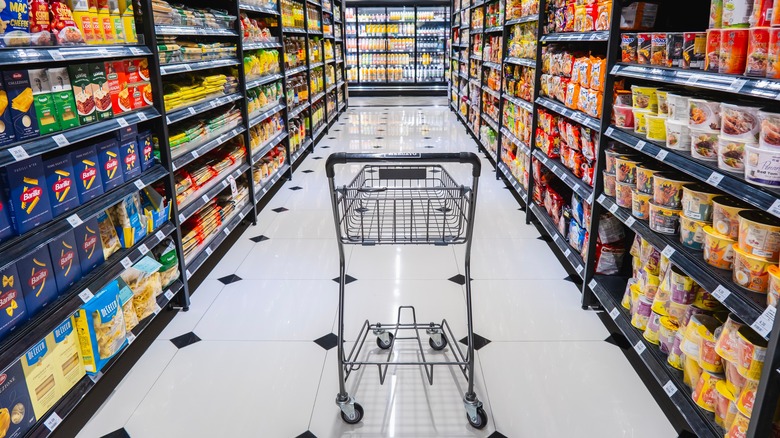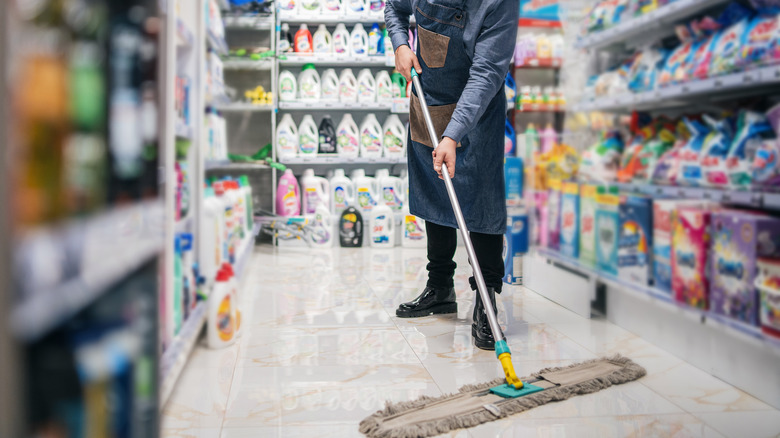The Red Flag That Immediately Indicates A Bad Grocery Store
When deciding which grocery store will be your go-to for kitchen restocks and last-minute ingredient preparation, you'll likely weigh certain factors like how expensive the items are, how far away the store is from your home, and what kinds of brands it keeps in stock. But before you make your final decision, check if you notice any visible dirt or dust accumulating in the aisles or on the floors. A grocery store that doesn't prioritize cleaning is probably a place to avoid.
Once you take a closer look around the facilities, you'll likely notice things that you hadn't before, like the fact that the grocery store doesn't have windows, or that the spill you saw on aisle six last week has now turned into a stain. Food safety laws require food contact surfaces and equipment to be properly sanitized multiple times throughout the day — but this cleanliness should also apply to anywhere that customers interact with frequently. When a grocery store has a dirty floor, it indicates that the facilities aren't being cleaned daily, and it's likely that employees also aren't cleaning other surfaces that require regular sanitation.
A lack of staff can result in dirty grocery store floors
Both modern grocery stores and supermarkets can be guilty of leaving floors dirty, with spills left out longer than they should be and crumbs swept under the aisles instead of into the garbage. The most common reason why a grocery store might not be keeping up with its cleanliness protocols isn't due to a lack of care, but rather a lack of employees. If a grocery store is understaffed, there usually aren't enough people to clean the floors, restock shelves, and be available for customers who need to check out, all at the same time. When only a handful of people are on duty at any given time, routine maintenance may fall down on the list of priorities.
Almost every state in the U.S. requires grocery stores to "employ a certified food safety manager," who should be in charge of delegating cleaning throughout the facility (per the Food Market Institute via Today). But when there aren't enough employees, this manager may be taking on cleaning tasks alone, which can lead to more dust accumulation and potential germ growth near food products. To help your local supermarket keep up with maintenance, alert a manager when you see a spill in the aisle — and if you happen to be the one who dropped grocery store produce on the floor, definitely let an employee know right away.


